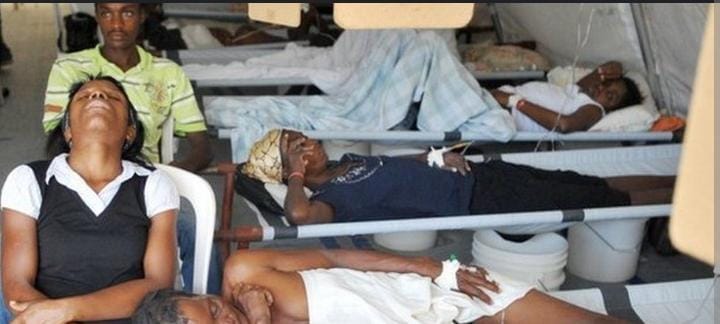Zimbabwe as of the 12th of November 2023 recorded 7267 suspected cases with 1218 of them being confirmed cases with 49 confirmed deaths and 143 suspected deaths.
Cholera is a bacterial disease that causes severe diarrhoea and is usually spread in water and through contaminated foods.
The country recorded its first case on the 12th of February 2023 in Mashonaland West, Chegutu.
Nine months down the line numbers have escalated in a country where the health system is dilapidated, one cannot avoid asking oneself the million-dollar question, Is Zimbabwe Ready for the Cholera Pandemic?
For many Zimbabweans, who went through the traumatic experience in 2008 and 2009 it is heartbreaking that the outbreak has yet again hit the country.
Harare City Council epidemiologist Michael Vere addressing journalists last week highlighted that poor hygiene from men contributed to the occurrence of such diseases.
He added that treating water had become expensive due to the high pollution saying, “The chemicals are expensive. Residents are billed in local currency yet chemicals are purchased in US dollar terms. Major sewerage bursts occur, with a perennial burst in Glen View requiring US$16m to repair.”
Harare Central Constituency Ward 5 Councillor Samuel Gwenzi, who spoke to the publication also had this to say, “There is a cholera outbreak in the city where I urge behavioural change in residents concerning hygiene. We have to take harsh measures to our informal traders and informal settlements in the city to deal with this disaster.”
Gwenzi further added, “Informal economy forms the biggest economic base of our population and contributes significantly to our GDP. Despite this great contribution it equally contributes to uncontrollable waste management and cholera. Hence effort has to be in place to protect lives.”
The continuous water shortages, poor sewer piping and systems, and lack of service provision of waste management and collection have also played a pivotal role in the cholera outbreak.
Many areas have not had the benefit of having running water for years and those that have been lucky have since started receiving water once a week only.
Food Vendors in the street have also contributed immensely to the spread of cholera although the cat-and-mouse chase with the City of Harare Municipality Police which has become a daily routine. The informal traders have resisted removal from the streets despite the numerous attempts.
The economic crisis partially sees itself playing a part in the waterborne disease’s current attack on Zimbabwe as there is a visible shortage of frontline health workers which may see some centres having a lack of manpower.
Citizens must also be wary of buying drinking water from sources that they have not verified as there is no trace of where the liquid would come from.
The curbing of mourners gathering at funerals of the cholera victims may pose as a challenge that may be another means of spreading the disease as the Zimbabwean cultures requires the presence of certain relations once one has departed.
With the above raised concerns, the million dollar question remains unavoidable, Is Zimbabwe Ready For Another Cholera Pandemic?









Comments